FORT KNOX, Ky. - They come from all walks of life. They are teachers, librarians, dispatchers and students; but they are Army Reserve Soldiers -- with a little extra twist.
Their formations are slightly different; the cadences they sing are of a different tune but most surprisingly is the of lack junior or field-grade officers within the ranks.
Instead, the unit is commanded by a chief warrant officer and led by a small group of senior noncommissioned officers who provide leadership, mentorship and make important unit decisions normally reserved for platoon leaders or company commanders.
"The 100th Army Band is an excellent example of the importance of the NCO Corps in today's Army," said Command Sgt. Maj. Luis Blanco, the 81st Regional Support Command's senior enlisted Soldier. "Every day, noncommissioned officers are gaining more responsibilities within their units, and they are accomplishing every difficult mission given to them."
Blanco said the 81st "Wildcats" are riding the wave of a new trend of highly-educated leaders with masters and doctorate of philosophy degrees.
"In today's Army, our senior leaders expect the NCO Corps to be highly educated," Blanco said. "The future senior NCO needs to be working toward a bachelor's degree at the minimum. We must prepare our NCOs to be leaders after their career in the Army."
He said the 100th Army Band is an exceptional model of NCOs taking charge and executing on point.
Tucked away on a small hilltop here, the 100th Army Band, one of three bands assigned to the 81st RSC, is very similar to hundreds of other Reserve units speckled across the country -- but only at first glance.
1st Sgt. Matt LaBarbara slowly corralled one of the largest Army Reserve bands into a large rehearsal facility to explain the weekend's events. Several senior NCOs appeared from a small office armed with folders and notebooks marked up with vital information for a busy two-day Soldier weekend.
Rehearsals, performances, reenlistments, combative training, moving office equipment and issuing combat equipment were just a few of the agenda items that needed to be completed in less that 36 hours.
"It never fails, we always seem to meet our goals that we establish at the beginning of each battle assembly," LaBarbara said during one of the breaks. "Everyone here knows their job and what is expected of them. Having some great NCOs help things move very smoothly here."
LaBarbara said the role of the NCO in the band is very similar to the motto of "Wildcats" based at Fort Jackson, S.C.
"We are here to train, maintain and sustain Soldiers, equipment, facilities and unit missions," he said. "Without NCOs, we wouldn't survive."
As the peak summer season quickly approaches, the band's busy performance schedule is practically finalized. For the six months, the nearly 50 musicians assigned to the band will provide music in support of the 81st RSC's mission in the southeastern portion of the U.S.
"We instill in our forces the will to fight and win, foster the support of our citizens, and promote our national interests at home and abroad," said Sgt. 1st Class John Pisano, a drummer and the unit's training NCO.
So what does that mean exactly'
Pisano said the 100th Army Band provides musical support to services members and communities by fielding a ceremonial music ensemble; popular music ensembles, such as the rock band; small ensembles organized for specific functions, like a brass quintet; and individual musicians for solo performances.
"In a tactical environment, Army bands also provide music support for stability and support operations," Pisano added.
All this is done with the creativity, initiative and leadership of NCOs who lead the unit's smaller Music Support Teams that provide a wide gamut of musical genre to audiences that range from grade school pep rallies to large city-wide celebrations.
From a musical perspective, NCOs serve as MST leaders or assistant leaders.
Pisano said band NCOs must be a master of multitasking; not only with their musical skill sets but with the daily duties of leading Soldiers by keeping the musical locomotion moving forward, no matter what cargo they pull or what mountain they conquer.
"They are organizing, instructing, training, counseling and evaluating instrumentalists of their particular MST," he said. "Additionally, team leaders also serve in different administrative capacities, such as music librarian, supply, training and operations NCOs -- depending on the needs of the band."
Balance
These additional duty assignments are important because Army bands are NCO-centric organizations, Pisano said.
"Band commanders expect NCOs to train and lead each of the band's administrative sections and musical ensembles," he added.
Both Pisano and LaBarbara said the key to success for an Army bandsman is the precise balance between being a musician and Soldier.
"We are not just musicians, we are warrior-musicians," said Pisano. "Our individual and collective success is measured by not only our musical abilities but also by our Soldier skills."
The biggest challenge of an Army band is balancing the warrior training with its musical training, he said.
Without adequate rehearsal time, individual and collective musical skills are perishable.
"We have to ensure we provide sufficient individual and ensemble rehearsal time," he said. "This typically means that on a given battle assembly weekend, we will spend our mornings engaged in physical training and warrior training and our afternoons are dedicated to musical training."
Pisano said one of the most common myths he hears of Reserve and National Guard Army bands is that they are only musicians.
"I think many Soldiers believe this myth because they only see an Army Band when they are deploying, redeploying, attending a change of command, promotion ceremony or attending a formal function," he said. "They do not see all of the other training the band undergoes to ensure the band serves not only as musicians, but as warrior-musicians."
LaBarbara said he ensures his Soldiers excel in training situations that are not band specific. "We meet the same standards as every other Soldier and in some ways more," he said.
Whether they are on the flight lines welcoming home American warriors from combat, or providing community fairs a little bounce in their dance, Army bands, like the 100th, will continue to be led by the backbone of the Army - the NCO.
"We must continue to allow our young non-commissioned officers to lead from the point and give them that chance to succeed both in the Army and back at home," Blanco said. "They are the future of my Army."
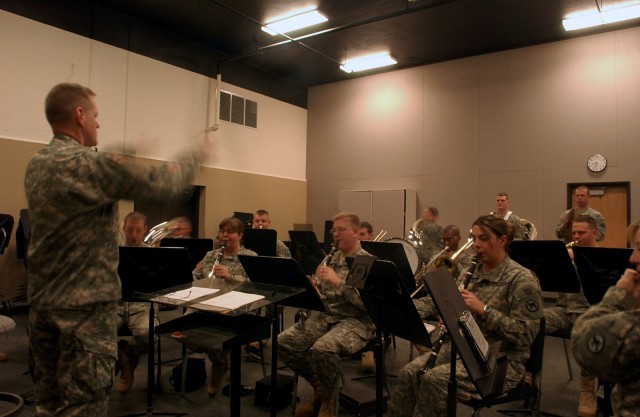
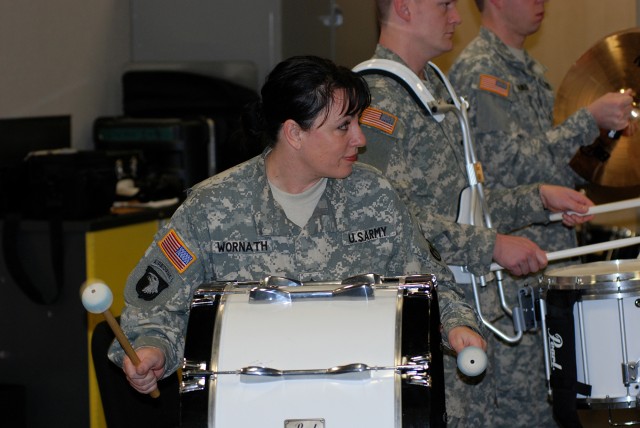
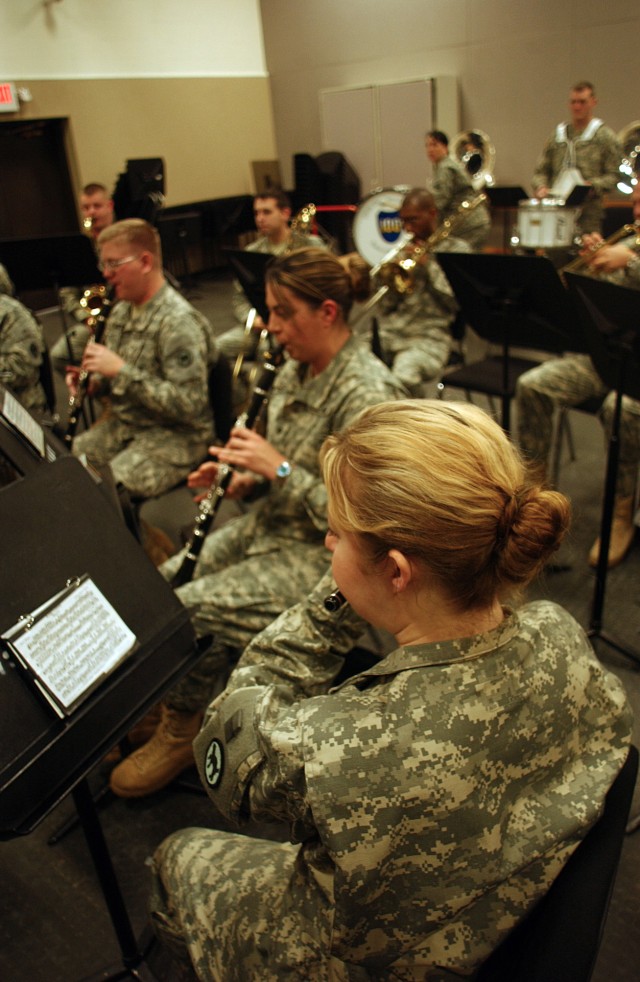
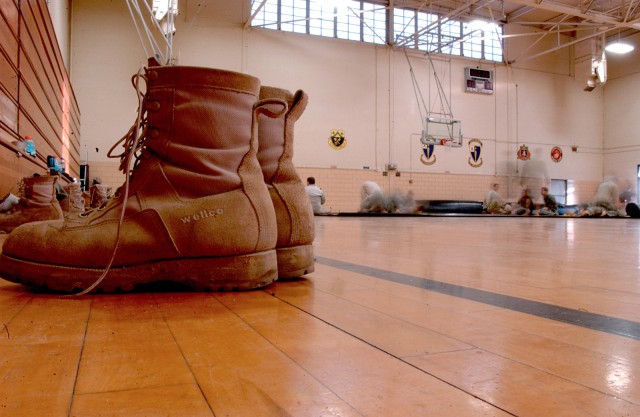

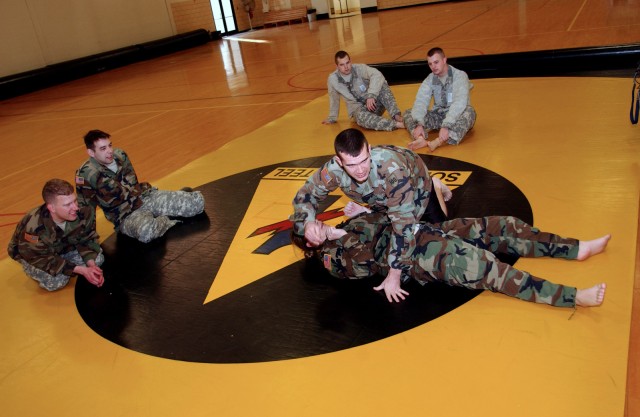
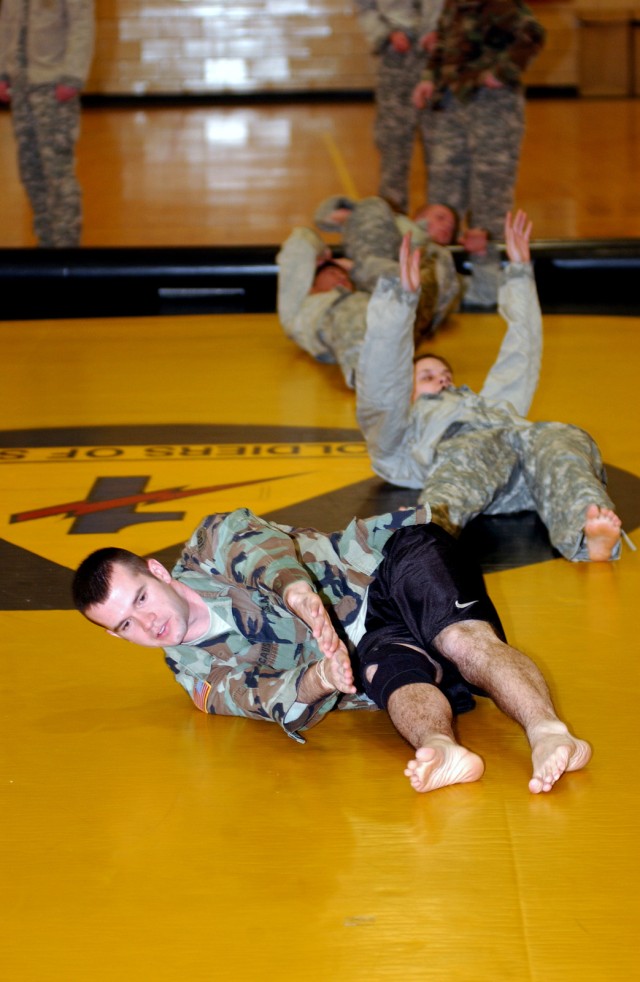
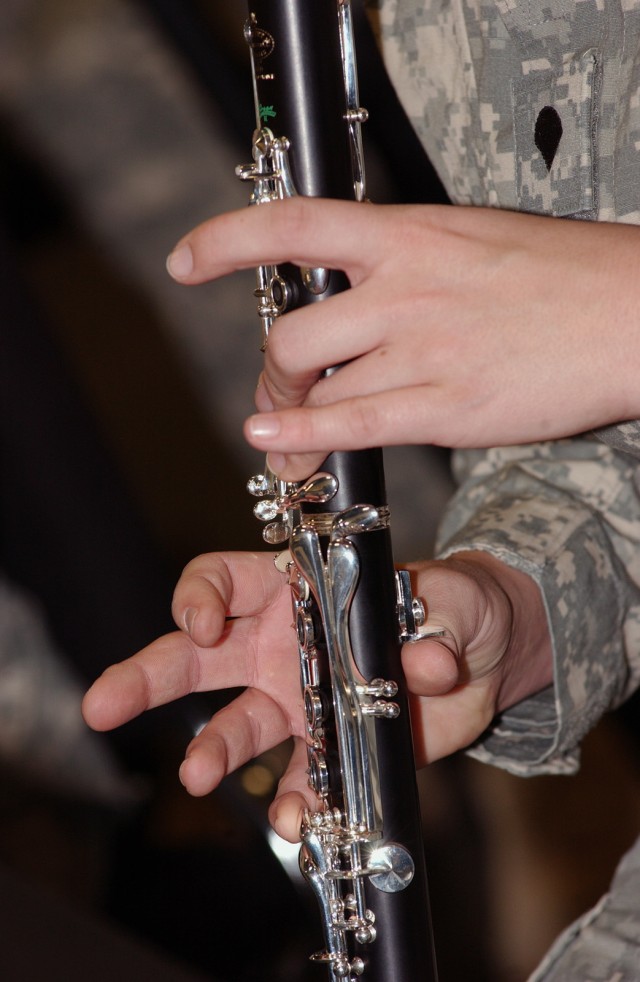
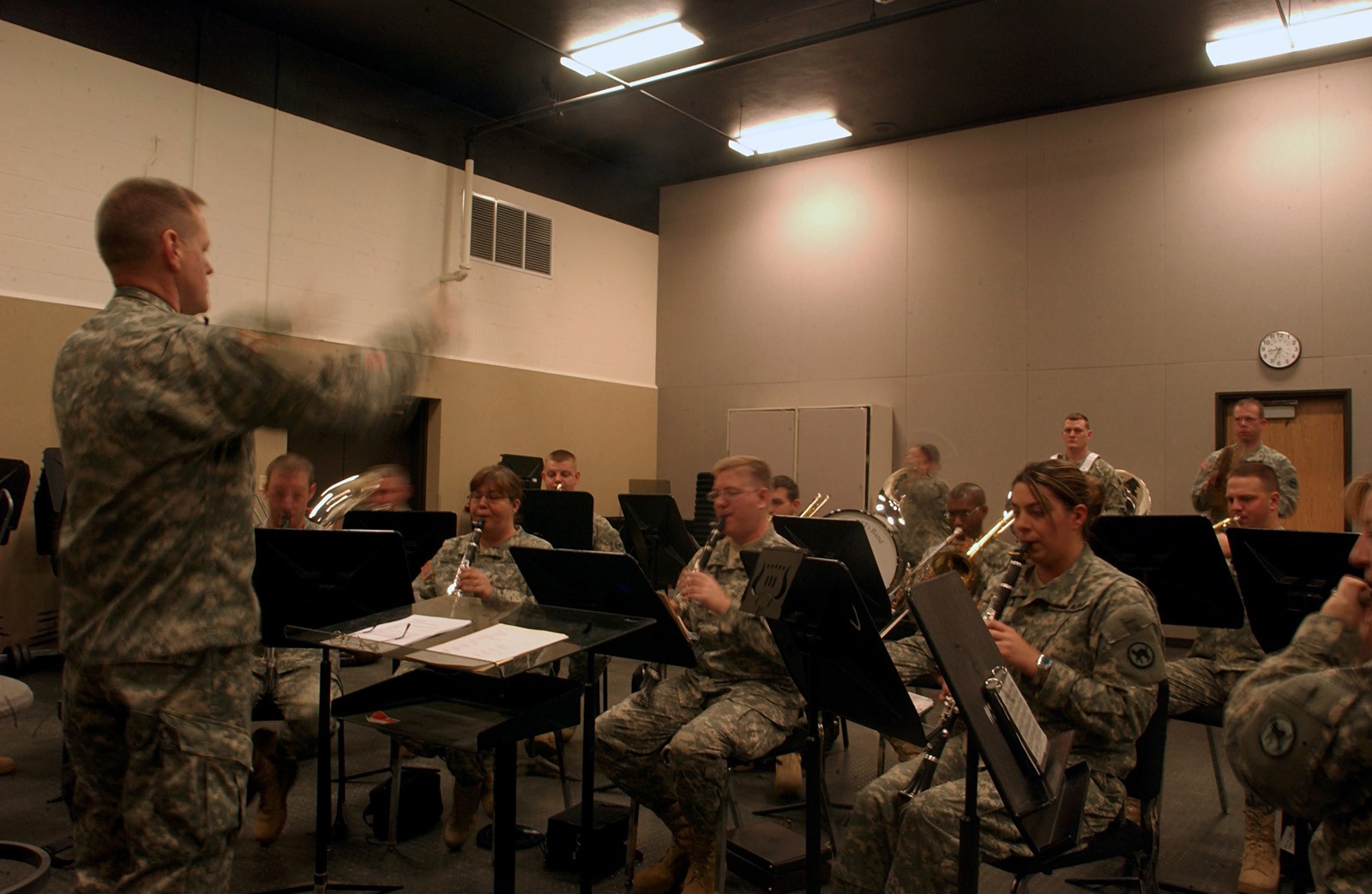
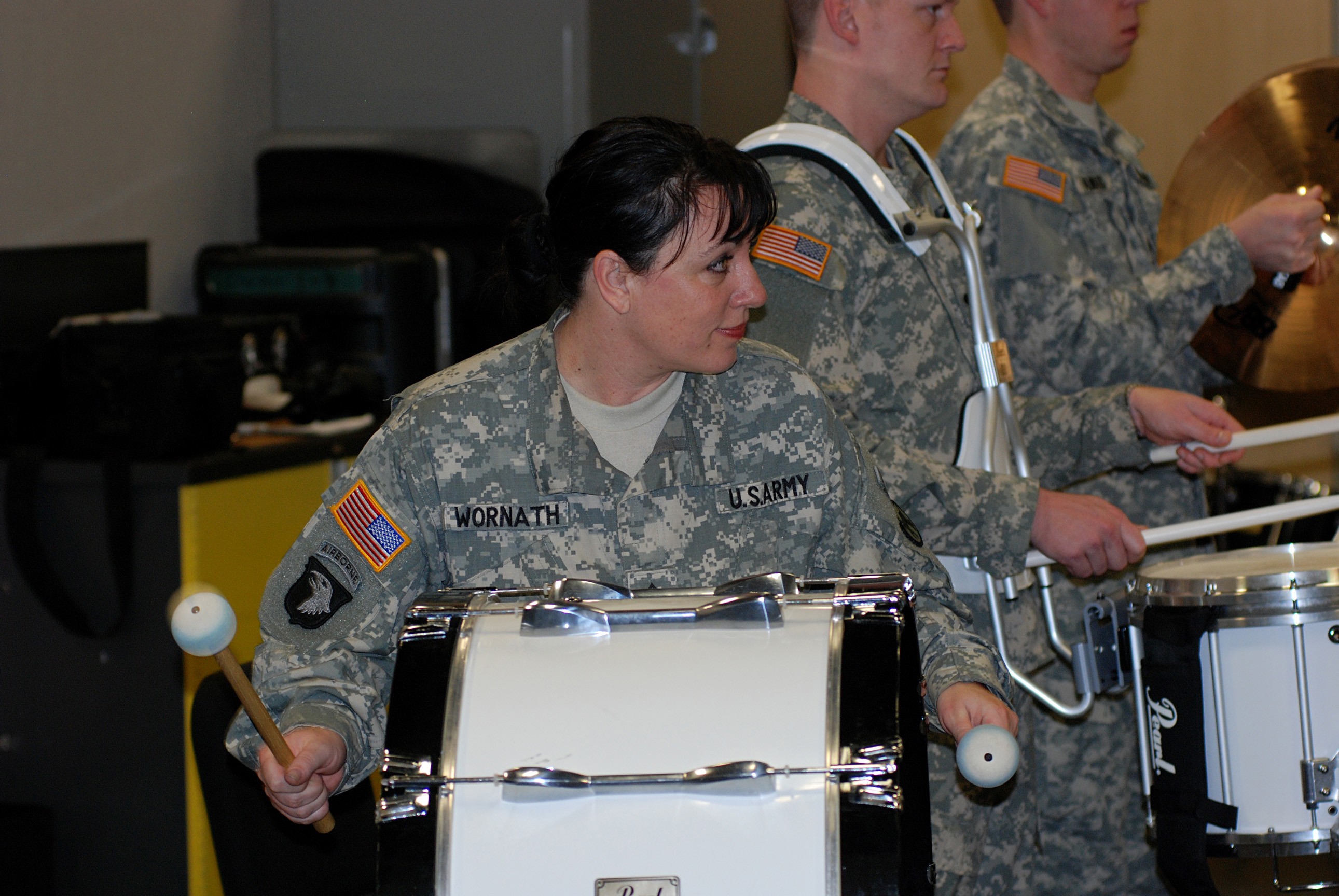
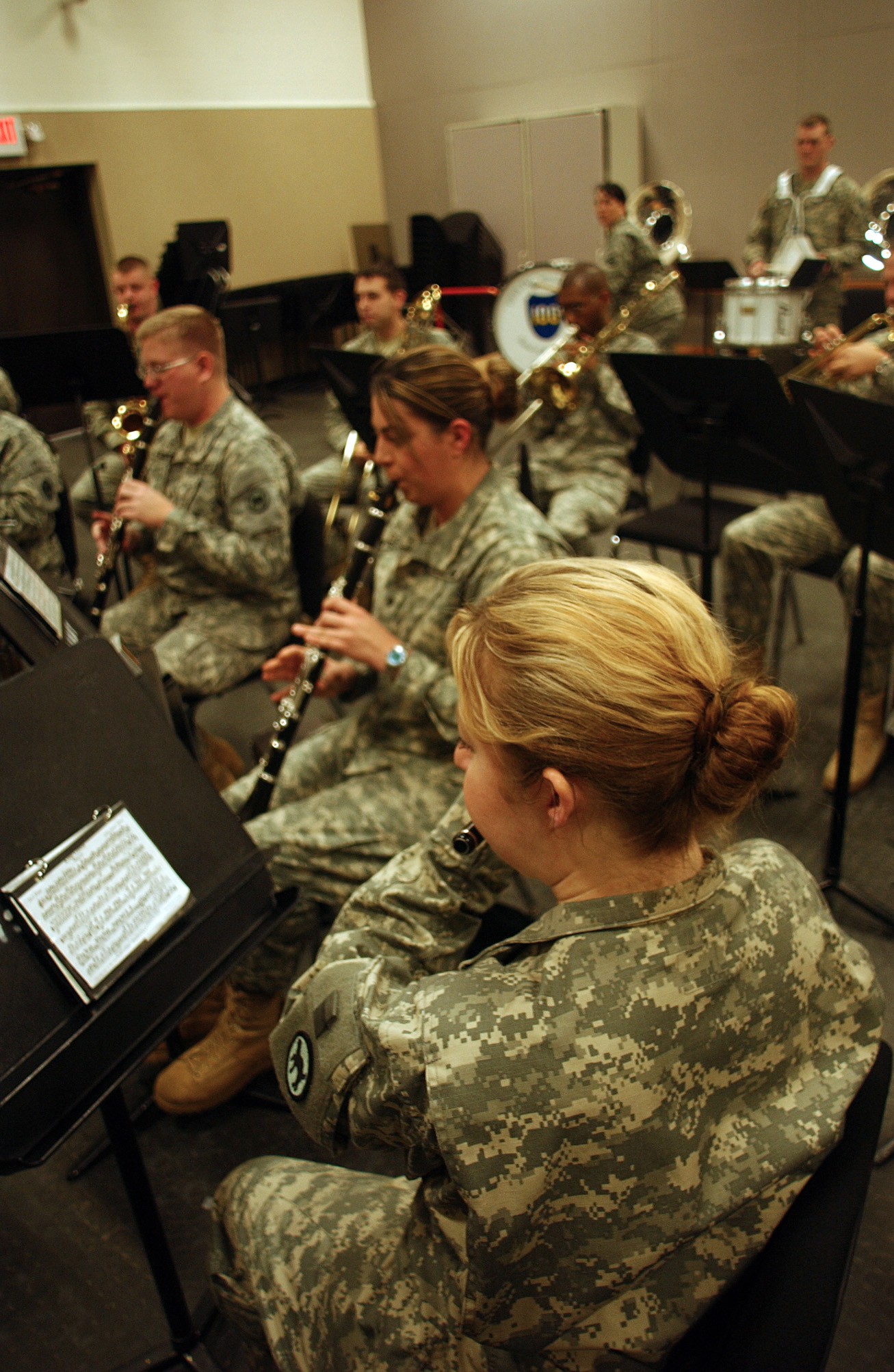
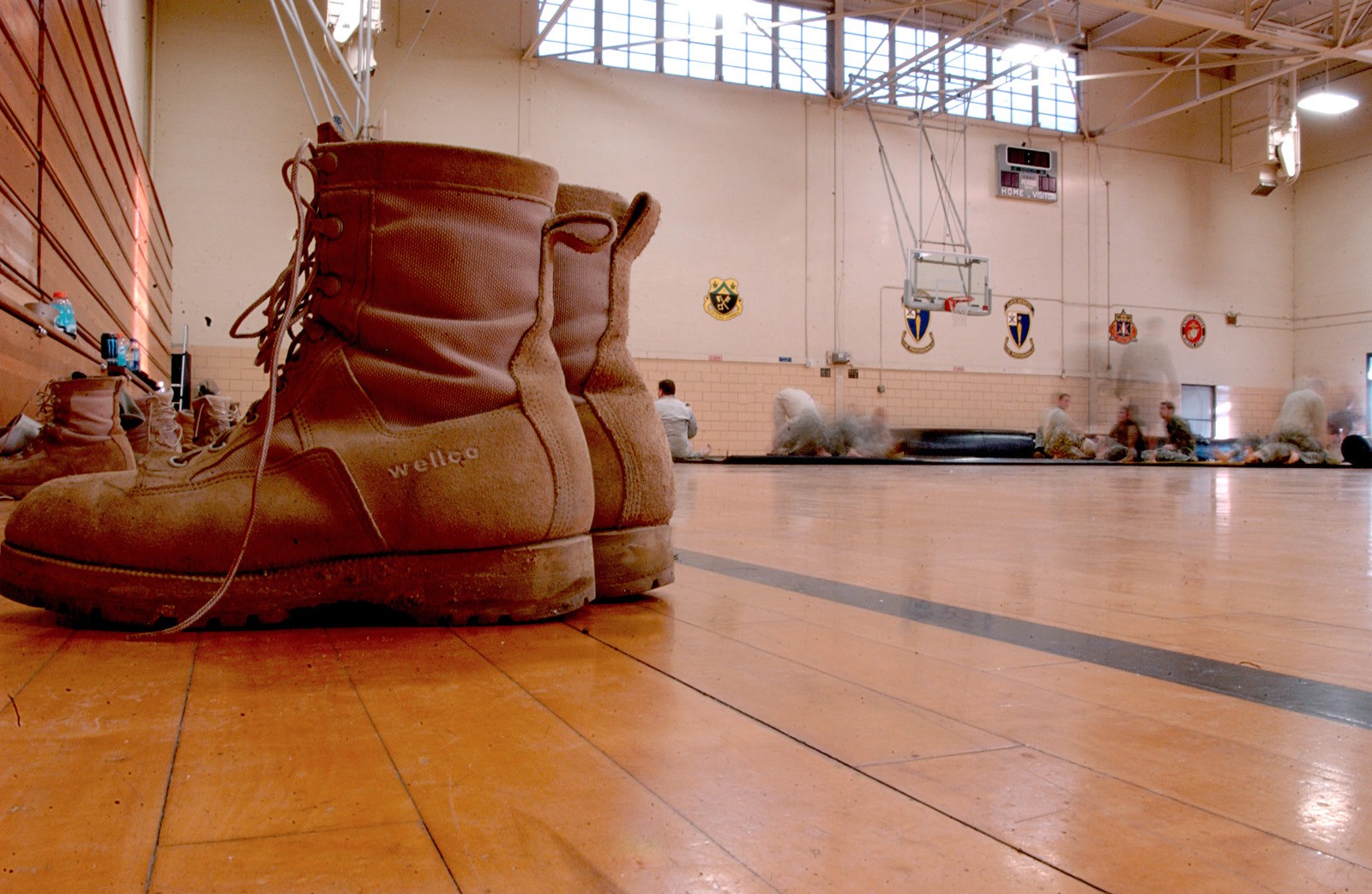
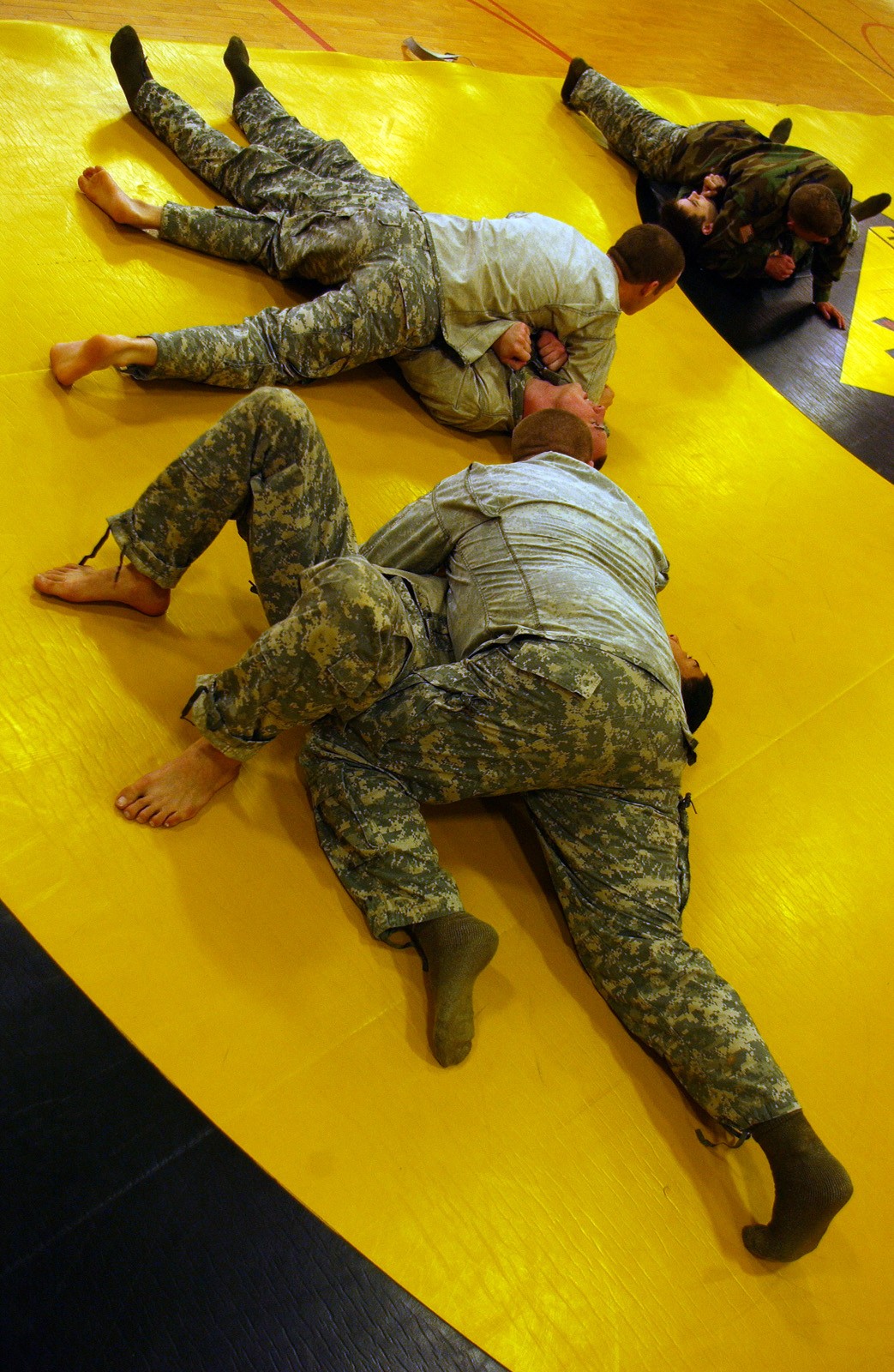
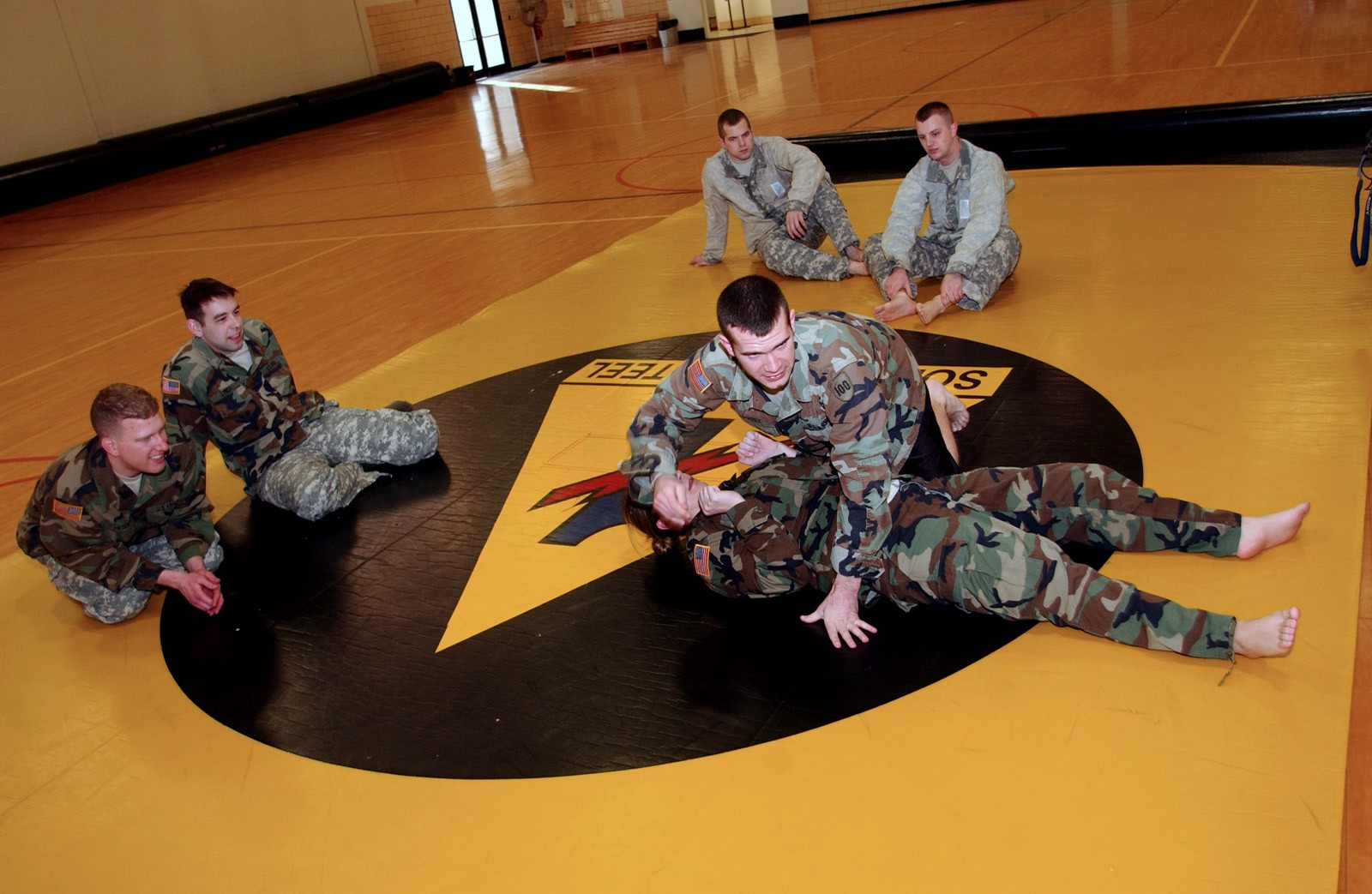
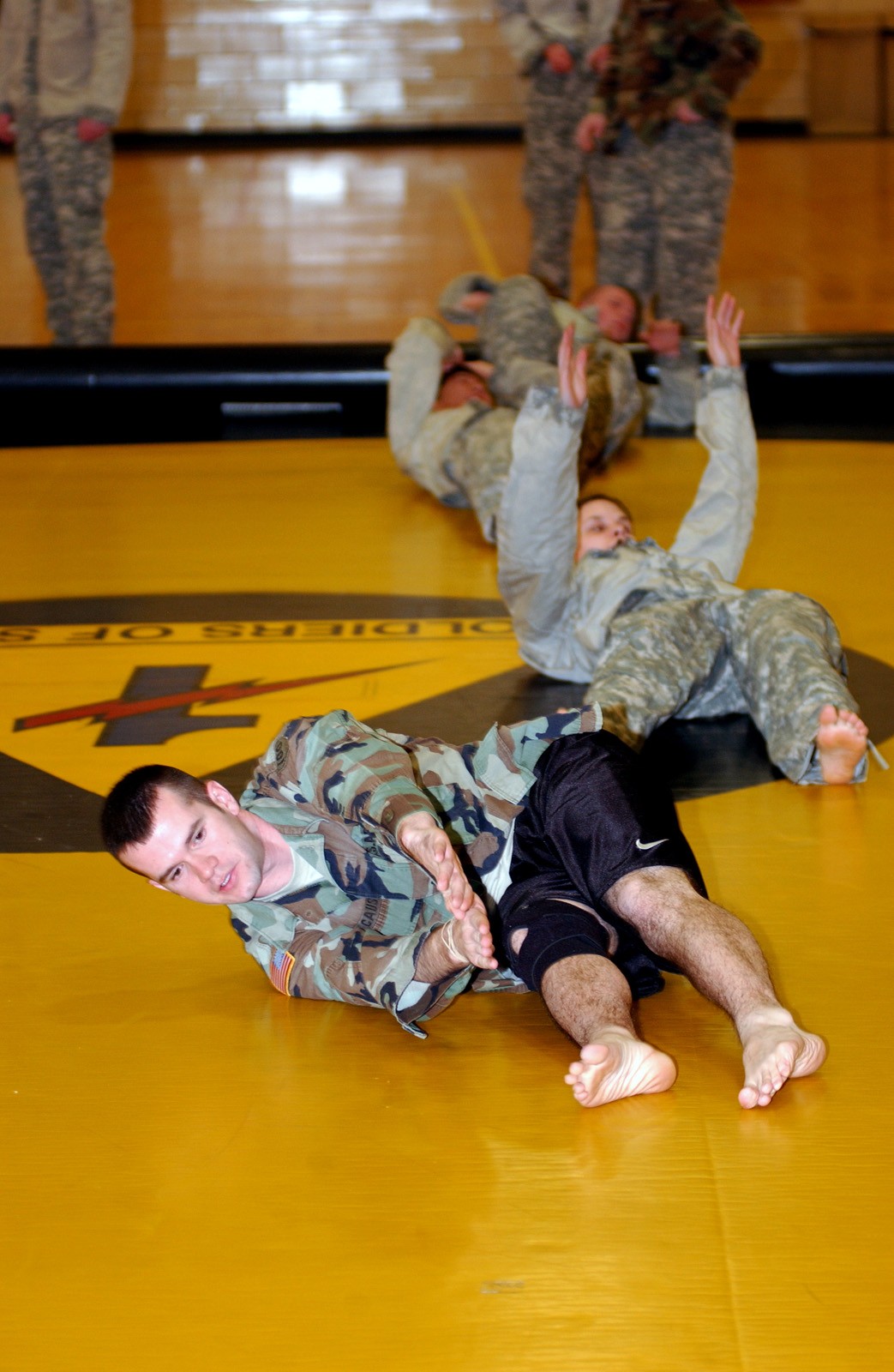
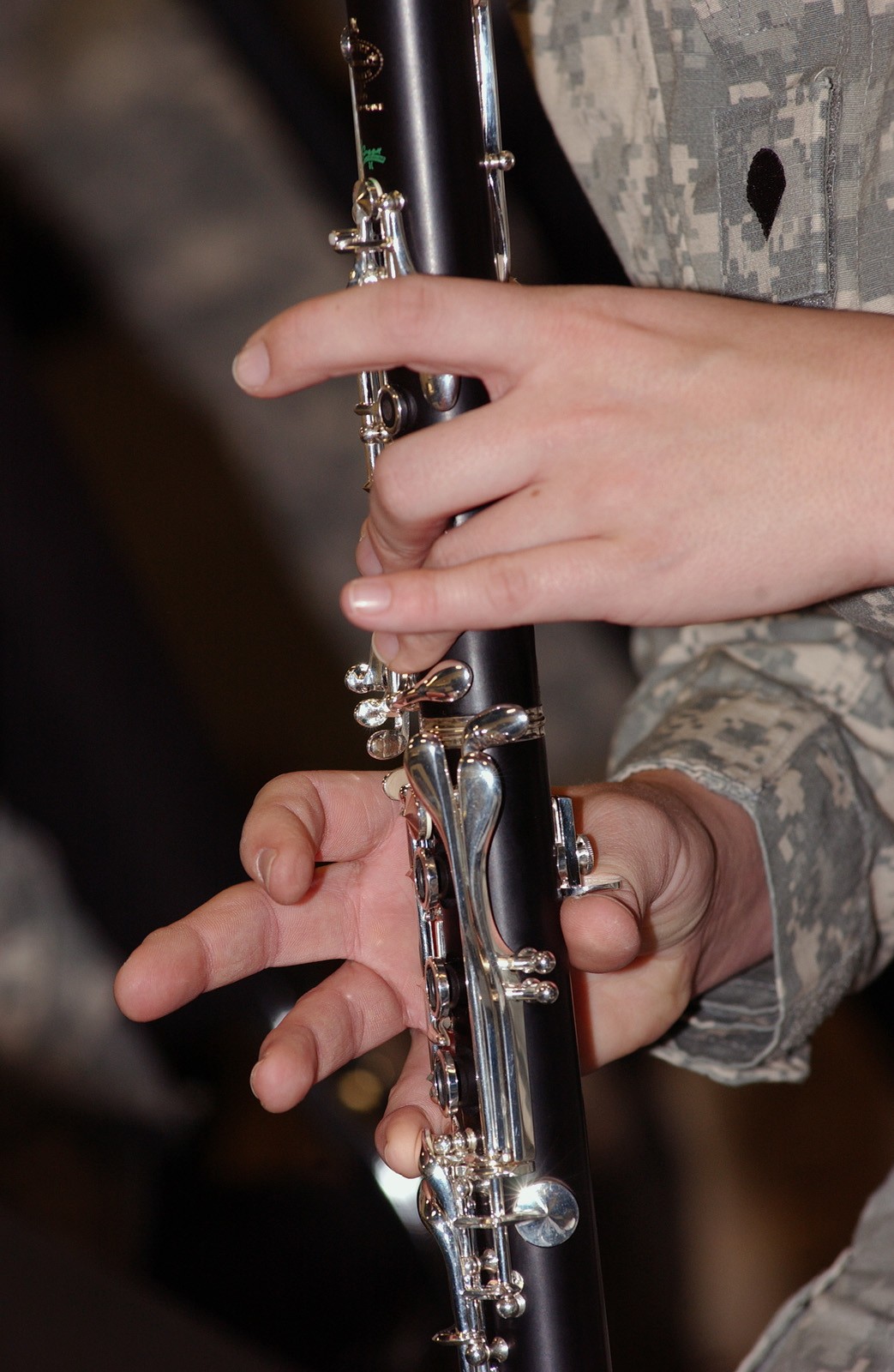
Social Sharing